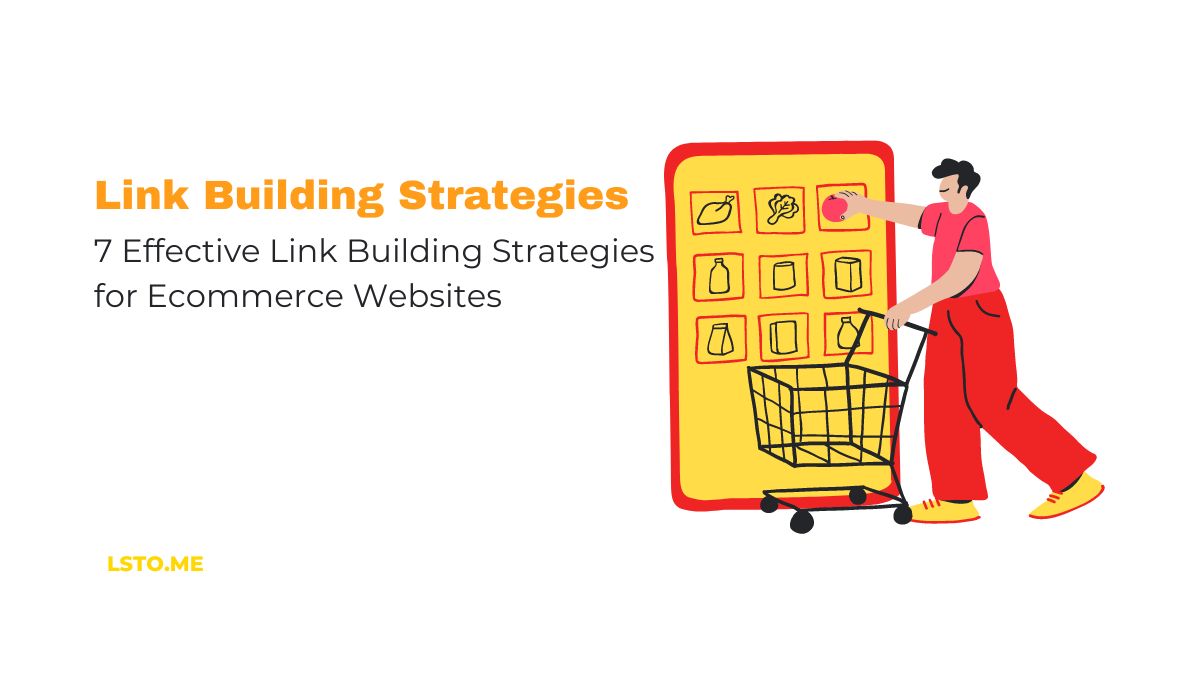
Link building is a crucial aspect of optimizing ecommerce websites for search engines and driving targeted traffic. By acquiring quality backlinks from authoritative sources, you can boost your website’s visibility, improve search engine rankings, and increase your chances of attracting potential customers. In this blog post, we will explore seven proven link building strategies specifically tailored for ecommerce websites to help you establish a strong online presence and drive organic traffic to your online store.
1. Create Unique Product Content:
Link building is an essential part of ecommerce website optimization that helps drive traffic and increases the ranking of your site. Creating unique and compelling product content is one of the most effective link building strategies for ecommerce websites. Product descriptions play a crucial role in attracting potential customers, encouraging them to make a purchase, and ultimately influencing search engine rankings.
Creating unique product content not only helps improve the user experience but also makes it easier for search engines to index your products. When creating product descriptions, it is important to focus on keywords that are relevant to your products while ensuring that the content reads naturally. Optimizing images with alt tags can also help improve visibility in search engine results pages (SERPs) as well as increase accessibility for visually impaired users.
2. Guest Blogging on Relevant Websites:
Guest blogging is a popular link building strategy for ecommerce websites. It involves writing quality content and submitting it to authoritative blogs or websites in your niche with a link back to your website. This technique can help build brand awareness, increase traffic, and boost SEO efforts.
The first step is to identify influential blogs or websites within your niche that accept guest contributions. Conduct research using online tools such as Google search, and social media platforms, or use an outreach service to find suitable targets. Once you have identified target sites, craft high-quality informative content that adds value to their audience while promoting your brand subtly. Ensure the articles are well-structured with relevant keywords without being too promotional.
When submitting your article, ensure you follow the guidelines set by the target site regarding formatting and publishing terms.
3. Leverage Influencer Collaborations:
In today’s digital age, influencer collaborations have become a powerful tool for businesses to drive their online presence and increase traffic to their ecommerce website. By partnering with influencers or bloggers who have a significant following in your industry, you can leverage their audience and reach potential customers who may not have heard of your brand before.
One effective way to identify social media influencers is by researching popular platforms like Instagram, Twitter, TikTok, or YouTube. Look for individuals whose content aligns with your business goals and has high engagement rates among their followers. Once you’ve identified potential collaborators, reach out to them with personalized messages that explain why you’re interested in working together and how it could benefit both parties.
By collaborating with influencers or bloggers through sponsored posts or product reviews, you can also gain valuable backlinks that will improve your website’s link-building strategy.
4. Resource Link Building:
Link building is an essential part of any ecommerce website’s SEO strategy. It involves creating backlinks from external websites to your own, which helps boost your website’s authority and search engine ranking. One way to successfully execute link building is through resource link building.
Resource link building involves creating helpful resources such as buying guides, tutorials, or industry reports related to your products or industry. These resources are then shared with relevant websites and blogs within your industry in exchange for a backlink to your website. This not only helps improve your SEO but also positions you as an authoritative source within your industry.
To effectively execute resource link building, it’s important to research the types of resources that would be valuable to both potential customers and other relevant websites in your industry.
5. Partner with Complementary Brands:
Link building is one of the most effective strategies for improving your eCommerce website’s ranking and driving organic traffic to your online store. And, partnering with complementary brands or businesses can help you achieve that goal more easily. By collaborating with other companies that share a similar target audience, you can gain access to their customer base and create a mutually beneficial relationship.
To identify complementary brands or businesses, start by researching your market niche and identifying non-competing companies that offer products or services that complement yours. For example, if you sell organic skincare products, consider partnering with a company that sells healthy snacks or eco-friendly cleaning supplies. You can reach out to these companies via email or social media and propose a collaboration idea that benefits both parties.
Moreover, partnering with complementary brands allows you to tap into their marketing channels, such as their social media platforms, email newsletters, blogs, etc.
6. Broken Link Building:
Link building is a crucial element of search engine optimization (SEO) that can boost the visibility of your ecommerce website. One effective link-building strategy is the broken link building technique. This approach involves finding broken links on other websites within your niche and then reaching out to those website owners to suggest replacing the broken links with a relevant ones from your site.
To effectively use this strategy, you need to first identify websites within your niche that have broken links. You can find such sites by using tools like Ahrefs or Broken Link Checker. Once you have identified these sites, reach out to the owner and suggest a relevant replacement link from your site. By doing so, you not only help them fix their broken links but also earn backlinks for your ecommerce site, which is essential for improving its ranking on search engines.
7. User-Generated Content and Reviews:
User-generated content and reviews play a crucial role in the success of any ecommerce website. They not only act as social proof for potential customers but also help in improving search engine rankings through link building. For this reason, it is important to encourage your customers to leave reviews and testimonials for the products they have purchased from your ecommerce.
One way of encouraging user-generated content is by sending follow-up emails after the purchase asking them to leave a review or rating on your site. You can offer an incentive such as a discount code or free shipping for leaving a review. Additionally, you can create a dedicated page on your website where customers can leave their feedback and showcase their positive experiences with your brand.
Another effective strategy is to integrate social media platforms into your ecommerce website.
Conclusion:
Implementing these link building strategies consistently and strategically can have a profound impact on the visibility and success of your ecommerce website. Remember to focus on creating valuable content, collaborating with relevant influencers and brands, and leveraging partnerships to earn high-quality backlinks. By combining these tactics with a user-centric approach, you can improve your search engine rankings, drive targeted traffic, and ultimately increase sales and conversions for your ecommerce business.




